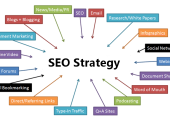Social media marketing in the healthcare industry has proven effective and powerful, especially in recent years, because of the increasing number of people using the internet. According to The National Library of Medicine, most physical activities were shifted online due to the COVID-19 pandemic, which allowed people to spend a lot of time on social media, establishing social media channels as primary avenues for information gathering and social interaction.
It’s safe to say that social media has become an integral part of our daily lives. As for madavi, we exist because of the internet. Its impact on various industries, not just healthcare, cannot be ignored. Building on that, Social media marketing has become a powerful and smart strategy for healthcare providers to reach their patients, promote their services, and create a strong online presence.
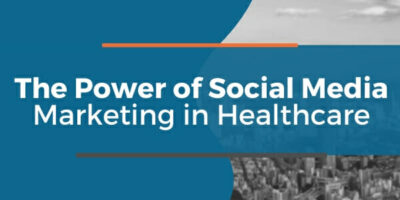
With the rise of social media platforms like Facebook, Twitter, and Instagram, healthcare providers can now connect with patients on a more personal level. Patients can share their experiences, ask questions, and receive support from healthcare providers through social media. This has helped improve patient engagement and satisfaction, which are critical factors in the healthcare industry.
Social media marketing has also enabled healthcare providers to promote their services and products to a broader audience. By creating engaging content, healthcare providers can attract potential patients and increase their brand awareness. Social media platforms also provide healthcare providers with valuable insights into their audience’s preferences and behaviors, allowing them to tailor their marketing strategies to reach the right people at the right time.
The Role of Social Media Marketing in Healthcare
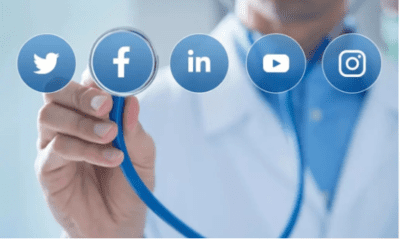
Social media has revolutionized the way healthcare organizations interact with patients and the general public. Social media is where patients come to share their experiences with your healthcare organization. With millions of people using social media platforms, you can market yourself using social media to raise health awareness and engage with patients.
Raising Health Awareness
It is common today for people to rely on social media for emerging news on not just healthcare but also many other things. We’ve all found ourselves wanting to do something or shunning away from some behaviors because we read some information about them online. That’s how easily social media can influence you. Healthcare organizations can take advantage of this power and use social media to share information about diseases, prevention, and treatment options bringing awareness to their organization.
By sharing educational content, healthcare organizations can help patients make informed decisions about their health. Some studies show that social media can also be used to promote healthy behaviors such as exercise, healthy eating, and smoking cessation.
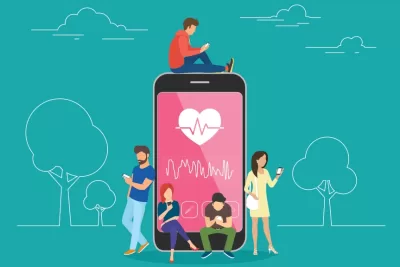
Patient Engagement Strategies
Social media can be used to engage with patients and improve patient outcomes. Healthcare organizations can use social media to communicate with patients, answer their questions, and provide support. You can also leverage social media marketing to encourage patients to actively participate in their health by sharing their experiences and connecting with others. This would essentially build trust with your followers and encourage people to come to your healthcare organization.
In conclusion, social media marketing plays a vital role in healthcare by raising health awareness and engaging with patients. By leveraging social media platforms, healthcare organizations can improve patient outcomes and promote healthy behaviors.
Social Media Marketing Strategies for Healthcare
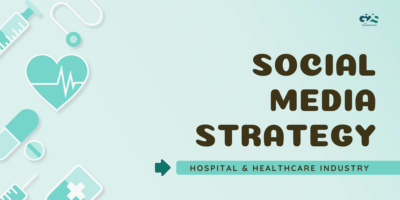
Healthcare is a growing competitive industry which poses a challenge to any healthcare industry looking to grow. Starting an organization isn’t enough today, you have to let people know what you’re offering and social media one of the proven platforms to help you create mass awareness.
To get more sales and loyal clients, a strong and effective marketing strategy is called for. This has made social media integral to the healthcare industry’s marketing strategy. With millions of users on various platforms, social media provides an excellent opportunity to reach out to potential patients and engage with them. Here are some effective social media marketing strategies for the healthcare industry:
Content Creation and Curation
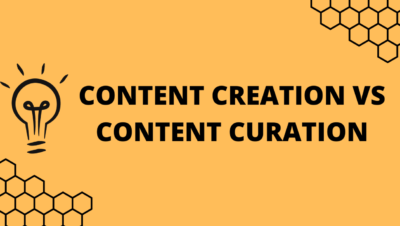
Creating and curating high-quality content is crucial for a successful social media marketing campaign. Your content should be informative, engaging, and relevant to your target audience. You can use a variety of formats, such as videos, infographics, blog posts, and images, to keep your audience interested.
To ensure that your content is effective, you should conduct thorough research on your target audience’s needs and preferences. You can also use analytics tools to track your engagement rates and adjust your content strategy accordingly.
Leveraging User-Generated Content

what is user-generated content in the healthcare industry? Well, this refers to all content produced by patients, caregivers, or other individuals not directly connected with healthcare organizations. This content may comprise text, images, videos, reviews, testimonials, social media posts, and other formats created voluntarily without monetary compensation.
User-generated content can be a powerful tool for healthcare marketing on social media. Encouraging your patients to share their experiences and reviews on social media can help build trust and credibility for your brand. Many times, patients search for other patients’ testimonials online to see if they can trust a certain brand. Encouraging your patients to share their satisfaction online is a tremendous key factor for authenticity and building trust.
To encourage user-generated content, you can create contests or campaigns encouraging patients to share their stories and experiences. You can also offer incentives such as discounts or free services to patients who share their experiences on social media.
When patients share their experiences with healthcare providers, facilities, medications, treatments, and medical devices, positive reviews and testimonials can enhance their reputation and attract new patients. At the same time, negative feedback can highlight areas for improvement.
Influencer Partnerships
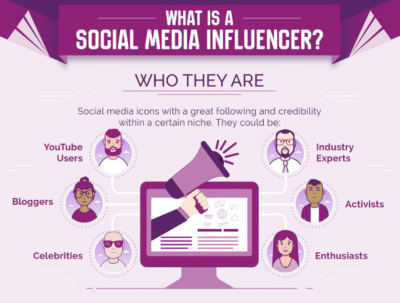
Influencer partnerships can be an effective way to reach out to a wider audience and build brand awareness. Partnering with influencers who have a large following in your target audience can help you bring spotlight to potential patients and build trust and credibility for your brand.
To find the right influencers for your campaign, you should conduct thorough research on their audience demographics, engagement rates, and content quality. You can also use influencer marketing platforms to connect with influencers in your industry.
In conclusion, social media marketing can be a powerful tool for healthcare providers to reach out to potential patients and build brand awareness. By creating high-quality content, leveraging user-generated content, and partnering with influencers, you can build a strong social media presence and attract more patients to your practice.
Compliance and Ethical Considerations

When it comes to social media marketing in the healthcare industry, there are certain compliance and ethical considerations that must be taken into account. In order to protect patient privacy and adhere to regulations such as HIPAA, it is important to follow certain guidelines.
Adhering to HIPAA Regulations
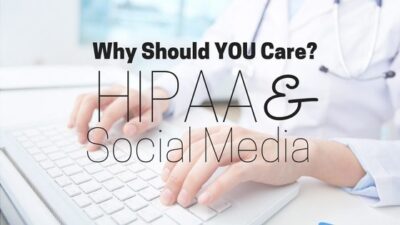
HIPAA, or the Health Insurance Portability and Accountability Act, is a federal law that regulates the privacy and security of personal health information. To comply with HIPAA regulations, healthcare organizations must ensure that any patient information shared on social media is secure and confidential.
This means that healthcare organizations must obtain patient consent before sharing any personal health information on social media. In addition, healthcare organizations must ensure that any social media platforms used for marketing purposes are compliant with HIPAA regulations.
Maintaining Patient Privacy

In addition to adhering to HIPAA regulations, healthcare organizations must also take steps to maintain patient privacy on social media. This includes avoiding using patient names, photos, or other identifying information in social media posts.
Healthcare organizations must also ensure that social media posts do not disclose sensitive or confidential patient information. This means avoiding discussing specific medical conditions, treatments, or procedures on social media.
Overall, compliance and ethical considerations are essential for social media marketing in the healthcare industry. By following these guidelines, healthcare organizations can ensure that they protect patient privacy and adhere to HIPAA regulations.
Measuring the Impact of Social Media Marketing in the Healthcare industry
Social media marketing has become an essential part of the healthcare industry, allowing healthcare providers to reach a wider audience and engage with patients in new ways. However, measuring the impact of social media marketing can be challenging. Here are some ways to measure the effectiveness of your social media campaigns.
Analytics and Key Performance Indicators
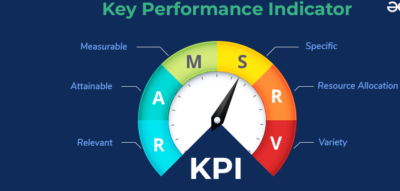
Analytics are essential for measuring the impact of your social media marketing efforts. They provide valuable insights into your audience, engagement levels, and overall performance. Some key performance indicators (KPIs) to track include:
- Reach: The number of people who have seen your content.
- Engagement: The number of likes, comments, shares, and clicks on your content.
- Conversion: The number of people who take a desired action, such as booking an appointment or signing up for a newsletter.
- Referral traffic: The number of people who visit your website from social media.
By tracking these KPIs, you can determine which social media platforms are most effective for your healthcare organization and adjust your strategy accordingly.
ROI of Social Media Campaigns
Measuring the return on investment (ROI) of your social media campaigns can be more challenging than tracking KPIs. However, there are several ways to determine the ROI of your social media efforts, including:
- Cost per click (CPC): The amount you pay for each click on your social media ads.
- Cost per acquisition (CPA): The amount you pay for each new patient acquired through social media.
- Lifetime value (LTV) of a patient: The estimated revenue a patient will generate over their lifetime.
By calculating these metrics, you can determine the cost-effectiveness of your social media campaigns and make informed decisions about your marketing budget.
In conclusion, measuring the impact of social media marketing in the healthcare industry requires careful tracking of KPIs and ROI metrics. By using analytics and monitoring key metrics, healthcare providers can optimize their social media strategy and achieve better results.
Future Trends in Social Media for Healthcare

Technological Advancements
The healthcare industry is constantly evolving, and with it, so is social media. One of the future trends in social media for healthcare is the integration of technological advancements. For example, Artificial Intelligence (AI) and Machine Learning (ML) can be used to analyze social media data and provide insights into patient behavior and preferences.
In addition, Virtual Reality (VR) and Augmented Reality (AR) can be used to create immersive experiences for patients, allowing them to explore medical facilities, learn about procedures, and even interact with healthcare professionals. This can help patients feel more comfortable and informed, leading to better outcomes.
Integration with Telemedicine
Another future trend in social media for healthcare is the integration of social media with telemedicine. Telemedicine is the use of technology to provide healthcare services remotely, such as through video conferencing or mobile apps. By integrating social media with telemedicine, healthcare providers can offer more personalized and convenient care to patients.
For example, patients can use social media to connect with their healthcare providers, access medical information, and receive reminders about appointments and medications. This can help improve patient engagement and adherence to treatment plans.
Overall, the future of social media in healthcare looks promising, with technological advancements and integration with telemedicine leading the way. By leveraging these trends, healthcare providers can improve patient outcomes and provide more personalized and convenient care.





